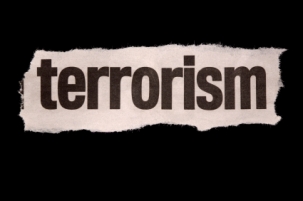
An excellent Op-ed by Thomas L. Friedman in the New York Times, “www.jihad.com”.
Let’s not fool ourselves. Whatever threat the real Afghanistan poses to U.S. national security, the “Virtual Afghanistan” now poses just as big a threat. The Virtual Afghanistan is the network of hundreds of jihadist Web sites that inspire, train, educate and recruit young Muslims to engage in jihad against America and the West. Whatever surge we do in the real Afghanistan has no chance of being a self-sustaining success, unless there is a parallel surge — by Arab and Muslim political and religious leaders — against those who promote violent jihadism on the ground in Muslim lands and online in the Virtual Afghanistan.
Last week, five men from northern Virginia were arrested in Pakistan, where they went, they told Pakistani police, to join the jihad against U.S. troops in Afghanistan. They first made contact with two extremist organizations in Pakistan by e-mail in August. As The Washington Post reported on Sunday: “ ‘Online recruiting has exponentially increased, with Facebook, YouTube and the increasing sophistication of people online,’ a high-ranking Department of Homeland Security official said. …
Dan Verton of Homeland Security TV ‘HSTV’ Presents another view.
The War on Terror’s Western Front Doesn’t Run Through The Internet
New York Times columnist Thomas L. Friedman recently published an OP-ED that argued the “virtual” terrorist threat in the form of “hundreds of jihadist Web sites that inspire, train, educate and recruit young Muslims to engage in jihad against America and the West,” is as dangerous as anything currrently happening in the “real Afghanistan.”
Stop. Think.
I’ve written about national security in the cyber realm for more than a decade, including an entire book on the emerging threat of cyber-terrorism. So I’m well-versed in the label of fear-monger, as many of the narrow-minded have labled me over the years. However, Friedman’s argument that the virtual world of online propaganda is a central front in the war on terrorism threatens to lead us on yet another dangerous path — one of misconception and miscalculation.
The tools of propaganda — of which the Internet is but one — have never been the central problem facing the United States and the West in this war on terrorism. If the Internet did not exist, there would be other tools of the trade. The real underlying problem that truly threatens our success against Islamic extremism is the systematic indoctrination and brainwashing of Muslim youth around the world and the outright reluctance — bordering on refusal — of mainstream, peace-loving Muslims to stand up and cleanse their religion of haters and murderers.
For those who fear I may be overstating the case, I encourage you to watch Palestinian television or any number of Saudi television broadcasts. To your horror, you will see children as young as four and five being lectured on the evils of Jews and Christians, and the virtues of violent struggle against them. You will see self-proclaimed religious scholars and academics chuckle about the thought of killing millions of Americans with weaponized Anthrax.
What you won’t see is any organized, large-scale attempt by Muslims in any corner of this world condemning such indoctrination or, better yet, taking actions to stop it. The frontlines of this war run through the minds of children and young people throughout the Muslim world and we are doing very little to ensure the destruction of the system of indoctrination.

![Reblog this post [with Zemanta]](http://img.zemanta.com/reblog_e.png?x-id=57759494-4625-4739-9b6d-1bfb5490d102)



BS”D That the internet is fertile ground for terror recruiting isn’t news. And it certainly isn’t limited to Afghanistan. That country is just what’s in the news more due to the troops being sent in. That the Times has to print this as an op-Ed piece, sorrowfully, isn’t news. That they NYT would print it at all – is news!
This completely glosses over the central problem here — which is not the tools of propaganda. The Internet is a new medium that propagandists can leverage to forward their cause. But it does not adress the underlying central problem of vulnerability to the messaging.
Who is vulnerable to the messaging, regardless of what form it comes in? Who cares if there are a million Websites calling for this, that or the other thing? If you’re not vulnerable to being duped by the messaging you’re not going to fall for it and act on it.
The disenfranchised, the desperate, and the young who have been indoctrinated since they were old enough to crawl in the ways of hatred, are vulnerable to this. If we could do something to address that problem, the Web sites would be nothing more than an annoyance and something to look at.
We’re missing the entire point of this war — which is not only to kill bad guys, but eliminate the conditions that help create new terrorists.
Here’s my OP-ED response on HSTV. I think the second half of Friedman’s article is the important part.
Forget http://www.jihad.com
From Homeland Security Television
http://www.hstvchannel.com/index.php?option=com_content&view=article&id=190